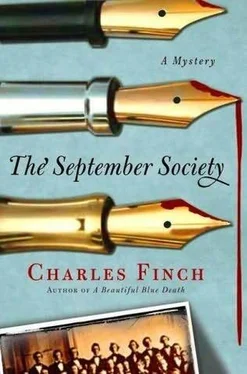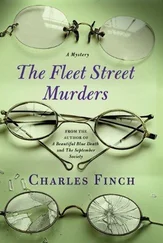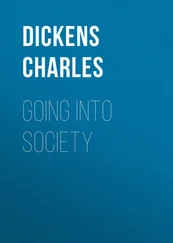Charles Finch - The September Society
Здесь есть возможность читать онлайн «Charles Finch - The September Society» весь текст электронной книги совершенно бесплатно (целиком полную версию без сокращений). В некоторых случаях можно слушать аудио, скачать через торрент в формате fb2 и присутствует краткое содержание. Жанр: Исторический детектив, на английском языке. Описание произведения, (предисловие) а так же отзывы посетителей доступны на портале библиотеки ЛибКат.
- Название:The September Society
- Автор:
- Жанр:
- Год:неизвестен
- ISBN:нет данных
- Рейтинг книги:4 / 5. Голосов: 1
-
Избранное:Добавить в избранное
- Отзывы:
-
Ваша оценка:
- 80
- 1
- 2
- 3
- 4
- 5
The September Society: краткое содержание, описание и аннотация
Предлагаем к чтению аннотацию, описание, краткое содержание или предисловие (зависит от того, что написал сам автор книги «The September Society»). Если вы не нашли необходимую информацию о книге — напишите в комментариях, мы постараемся отыскать её.
The September Society — читать онлайн бесплатно полную книгу (весь текст) целиком
Ниже представлен текст книги, разбитый по страницам. Система сохранения места последней прочитанной страницы, позволяет с удобством читать онлайн бесплатно книгу «The September Society», без необходимости каждый раз заново искать на чём Вы остановились. Поставьте закладку, и сможете в любой момент перейти на страницу, на которой закончили чтение.
Интервал:
Закладка:
“It’ll come clean soon, I’ve no doubt,” McConnell said consolingly, giving the note back.
“I suppose you’re right. Jane’s doing well, incidentally?” said Lenox.
“It would put anyone’s back up to have their maid shot, but she’s doing remarkably well, yes.”
They spoke for another few moments, but as soon as he had drunk his last drop of tea, McConnell stood up and said he had to go. Lenox could see his eagerness to return to his pregnant wife, and envied him it.
“Sorry to have taken you away from home, but the file couldn’t leave Edmund’s…”
“Oh, not at all, I was glad to get a look at it. One of the queerest means of murder I’ve ever heard of. By the way, what do you make of that missing sheet? In the file on Payson?”
“Missing sheet?”
McConnell had been halfway out the door, but he turned back fully to Lenox now. “You must have seen that there was a third sheet in Payson’s file. In the War Office’s file.”
“I confess I didn’t.”
“Yes-in all that useless information on the bottom of the first page it said 1/3, the second said 2/3… I suppose I got used to looking there when I practiced medicine.”
“Unforgivable on my part.” Lenox shook his head. “What do you think it was?”
“Could have been anything-a meaningless addendum, the solution to the whole problem. I don’t know. But if it were meaningless, why would it be gone?”
CHAPTER THIRTY-NINE
T hat evening at eight forty-five, Lenox put on a swallowtail coat and white evening tie, his SPQR cufflinks, a black waistcoat, and last of all his black patent leather shoes, buffed by the shoe-and-lace boy who came by once a week. Boats were steaming toward the New World, merchants were taking stock in Yorkshire, and railroads were being built one spike at a time so that Lenox could stand at his mirror in the city at the center of the world, preparing himself for the evening. But for better or worse, none of that was on his mind.
He straightened his tie with one last nudge of his knuckle, turned, and went downstairs. His carriage was waiting on the curb, but he didn’t hurry to it as he usually did; he looked over a neat stack of papers on his desk once more, put them into a brown leather case, donned his heavy overcoat, and only then went outside, with Mary wishing him well. It was a special evening.
The SPQRs met once every two months, sometimes less and never more often, in a large room, windowed on two sides, at Boodle’s. Of all his clubs-and by now Lenox belonged to some seven or eight-Boodle’s was the most prestigious, and the one he visited least. Lenox’s ancestor the late eighteenth-century Prime Minister the Marquess of Landsdowne had founded it. People there tended to be somewhat staid, a departure from the club’s earlier days when Beau Brummell had made his last bet there before fleeing to France and the Duke of Wellington had taken his evening meals there with a choice friend or two, guaranteed for once of no adoration. It was placed well, at 28 St. James’s Street, and even clubmen passed it with a reverentially silent step, contemplating their slim chance of entrance; the days were long gone when the club was whimsical and un-self-important enough to be named, as it had been, for a beloved waiter.
“Mr. Lenox,” said Timothy Quails, an institution himself, in the doorway of the club. He held the door open.
“Thanks, Quilts.” Somehow that name had stuck to the doorman. “Am I first?”
“Last, sir, save one.”
He emphasized the word “one” strangely, and Lenox knew whom he meant. He mounted the back staircase two steps at a time and entered the SPQRs’ usual room with a smile at the five men seated at the round table in the corner.
“No sign of our seventh yet, according to Quilts?”
The other five men stood up and crowded around him, smiling and offering their hands in turn. Some of them he only saw at these meetings and some he saw every day, or nearly every day. All of them were his close, close friends; after nine years, he could have gone to any of them with any problem and been assured of their confidence and sympathy. The club was seven for precisely that reason. They were Lenox; young James Hilary, the MP, whom Lenox had proposed, and whose third meeting it was; Sir John Beacham, an engineer and student of Brunel’s who was only slightly older than Hilary, and considered in his profession to be immensely promising; Thomas Weft, who was kind, poor, shy, and brilliant, but had only a sinecure at the Naval Office, procured for him by an SPQR, to show for it; Lord Hallam, the terrifying, imperious inventor and scientist who had introduced McConnell to the Royal Society; and, sixth, Francis Charles Hastings Russell, Liberal Member of Parliament for Bedfordshire, founder of the SPQRs, and agricultural theorist, who would become the 9th Duke of Bedford when his father died.
Then there was the seventh member of the club, who came in about ten minutes later while the other six men sat at the table talking. He was Edward, the Prince of Wales and heir apparent to his mother’s crown. Though he had come late to scholarship-for the SPQRs’ common interest was Roman history-at Christ Church he had been keen, and he and Francis Russell had been friends. That he knew the least of the seven was no obstacle; doors opened at the sight of him that would have been closed shut to the battering of money and even position, usual position. He was candid, friendly, and yet slightly remote. Theirs was his only intellectual pursuit. The rest of the time, married though he was to Princess Alexandra, he was with women and friends, living the life of a playboy.
“Marius,” said the future duke, and was first to shake the prince’s hands.
There were a few hard and fast rules of the SPQR, and one was that names didn’t matter. Weft and the prince could shake hands, for those few hours, as equals, Aurelius and Marius. Lenox was called Julius, and when the prince came to him the royal lips moved slightly: “Well, Julius, how goes it in Oxford?”
“Well enough,” said Lenox, momentarily dumbstruck.
“I wish you all luck there. This is still England…”
The meeting opened with a ceremonial glass of Roman honeyed wine, which the chef at Boodle’s prepared a week in advance. Russell said the traditional opening words.
“Gentlemen, welcome again to this tiny club of ours. Tonight we honor the long dead, for the happiness and instruction they bring to our short lives. Drink with me once, and be my friend forever.”
For supper there was soup, fish, steak, and finally Boodle’s orange fool, made of sponge cake, orange, lemon, heavy cream, and sugar; it tasted delicious with a glass of champagne. Talk over supper was general and avoided their common interest, which was reserved for the postprandial hour. They talked about politics, horses, friends, hunting, cricket, books, their lives. Over dessert everybody was responsible for a paragraph of praise and celebration of the person to his left. Lenox spoke of Beacham, the engineer, with fond and witty brevity, and in turn had to listen to Weft’s encomium.
The great hour, though, was the brandy hour. When it arrived they all felt slightly more solemn, unbuttoned their cuffs, gave great sighs of contented fullness, and sipped their drinks to the accompaniment of a lecture. At this meeting it was Weft’s turn, and the young scholar gave a lively account of gossip’s role in the second Catiline conspiracy (he was a great lover of Cicero, Weft). The speech met with thundering applause and a lively round of questions. Even the prince asked a question-rare for him-on a minor point of Senate history and was congratulated on its aptness. Lenox challenged Weft’s translation of a line of Sallust and gained the small concession from the room at large, though Weft stuck with his original reading. Hallam brought forth an exceedingly rare Roman coin he had acquired at auction and, as a first order of business, made a present of it to the SPQRs, which was greeted with many toasts and great excitement.
Читать дальшеИнтервал:
Закладка:
Похожие книги на «The September Society»
Представляем Вашему вниманию похожие книги на «The September Society» списком для выбора. Мы отобрали схожую по названию и смыслу литературу в надежде предоставить читателям больше вариантов отыскать новые, интересные, ещё непрочитанные произведения.
Обсуждение, отзывы о книге «The September Society» и просто собственные мнения читателей. Оставьте ваши комментарии, напишите, что Вы думаете о произведении, его смысле или главных героях. Укажите что конкретно понравилось, а что нет, и почему Вы так считаете.












